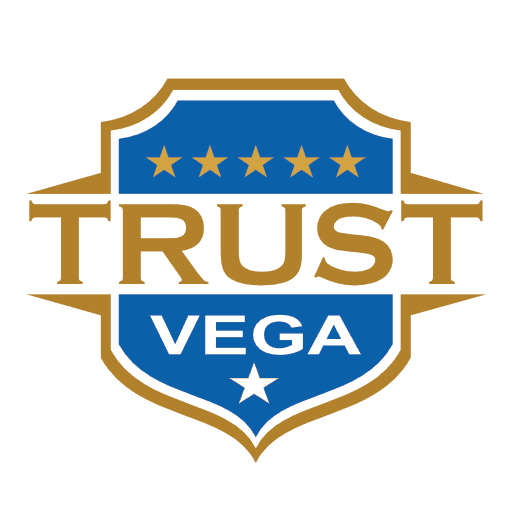Do you usually read reviews before making a purchase or choosing a service provider?
You’re not alone!
As consumers, we’ve learned to rely on the feedback and experiences of others to make purchasing decisions.
Online reviews are the modern-day word of mouth, and they can make or break a business’s reputation. In fact, studies show that more than 99.9% of consumers read online reviews when they shop online, and 98% feel that reviews are an essential resource when making decisions about what to purchase. [1]
Additionally, according to BrightLocal (2022), 46% of consumers trust online reviews as much as personal recommendations from family or friends. [2]
In short, impressions matter.
As a business owner or marketer, review monitoring should be a key part of your marketing strategy. By monitoring your reviews, you can address customer concerns, improve your products or services, and build trust with potential customers.
In this article, we’ll dive deeper into the benefits of monitoring reviews and provide tips on how to effectively manage your online reviews to build a positive brand reputation and attract more customers.
Table of Contents
- What is review monitoring?
- Benefits of review monitoring
- How to manage and monitor your online reviews
- Why Respond to Positive Reviews?
- Why Respond to Negative Reviews?
- How To Respond To Reviews
- Best free online review monitoring tools
- What are important review sites?
- The importance of being proactive with reviews
- Why online review management software can save time
What is review monitoring?

Review monitoring is the process of keeping track of online reviews of your business and analyzing them. This includes reviews on Google, Yelp, Facebook, and other industry-specific review sites.
It involves checking your business’s online reviews on a regular basis, reading and analyzing what they say, and taking action based on what you learn.
By monitoring your reviews, you can:
- find out and stay informed about what customers are saying about your business online
- respond to reviews promptly to address any problems or concerns
- identify trends and patterns in your reviews that can help you plan your business strategy
- improve your online reputation by actively managing your business reviews.
Benefits of review monitoring
Review monitoring is beneficial to a company in a variety of ways. It not only helps to improve the quality of your product, it also helps you stay aligned with your customers.
Here are several ways that review monitoring can benefit your business:
Improves Reputation
The most obvious benefit of review monitoring is that it allows businesses to keep track of what customers are saying about them online.
This information can be used to identify areas where the business is performing well and where it needs to improve.
By responding to both positive and negative reviews, businesses can show that they value their customers’ feedback and are committed to providing excellent service.
This, in turn, can help build a strong brand reputation and trust.
Identifies Trends
Review monitoring allows businesses to identify trends in customer feedback by analyzing reviews across multiple platforms.
This information can be used to make informed decisions about product development, customer service training, and other areas of the business.
If customers consistently complain about a certain feature of a product, for instance, businesses can take steps to improve or remove that feature.
Increases Customer Satisfaction
Businesses can improve customer experience and satisfaction by responding in a timely and helpful manner.
Customers are more likely to return to a business and refer it to others if they feel their feedback is being heard and addressed.
Additionally, responding to negative reviews can prevent further damage to a business’s online reputation.
Boosts SEO

Review monitoring can positively impact a business’s search engine optimization (SEO) by improving their ranking in search results and attracting more customers.
Responding to reviews with relevant keywords and phrases can further boost online visibility and increase the chances of appearing in search results. This can lead to higher website traffic, improved conversion rates, and ultimately, increased revenue.
Gives You A Competitive Edge
Review monitoring can provide insights into the competition by analyzing their reviews. This can help businesses identify areas where they have an advantage or need to improve.
This information can be used to develop more effective marketing strategies, improve products or services, and better understand customer preferences and expectations.
Mitigates Negative Reviews
One of the most significant benefits of review monitoring is the ability to mitigate negative reviews before they become a problem.
It enables businesses to address negative reviews promptly and professionally, demonstrating their commitment to customer satisfaction.
By doing so, businesses can prevent bad reviews from spreading and causing long-term damage to their reputation.
How to manage and monitor your online reviews
It is no doubt online reviews have become a crucial aspect of a business’s reputation, and customers often rely on online reviews to make informed decisions.
Therefore, managing and monitoring online reviews is critical to maintaining a positive image in the online world.
Here’s a step-by-step guide to managing and monitoring your online reviews:
#1 Set up accounts on popular review sites.
The first step in managing and monitoring online reviews is to set up accounts on popular review sites, such as Google, Facebook, and Yelp. This will allow you to monitor your reviews and respond to feedback from customers.
#2 Monitor your reviews regularly.
It is important to monitor your reviews regularly to keep track of what customers are saying about your business. You can do this manually by regularly checking each review site, or you can use software to automate the process.
#3 Respond appropriately to reviews
Whether the review that you receive is positive or negative, it’s important to respond in a timely and professional manner. Thank customers for their feedback, address any concerns they may have, and provide more information if needed.
#4 Analyze your reviews

By analyzing your reviews, you can identify trends and patterns in customer feedback that can help you with your business strategy. Look for areas where your business is performing well and areas where you can improve.
#5 Take action based on feedback
Use the insights you gain from your reviews to improve your business and take action. This may involve making changes to your products or services, improving your customer service, or addressing any specific concerns raised in your reviews.
#6 Encourage customers to leave reviews
Finally, it is important to actively encourage your customers to leave reviews. This can be done through email marketing campaigns, social media posts, or by putting links to review platforms on your website.
You can also use software like Trust Vega to automate much of the “encouragement” process.
The more reviews you have, the more valuable insights you can gain about your business.
By following these steps, you can effectively manage and monitor online reviews, build a positive virtual reputation, and ultimately drive more sales and revenue for your business.
Why Respond to Positive Reviews?

“The best we’ve used…”
“Very happy customer…”
“Easy to implement and fantastic customer service…”
“Highly recommend…”
Sounds familiar?
These are just some examples of positive reviews.
A positive review is a valuable asset for businesses as they indicate customer satisfaction and attract new customers. However, responding to positive reviews is equally important, as it shows appreciation for customers’ feedback and helps build a stronger relationship with them.
Acknowledging positive reviews demonstrates that the business values customers’ opinions, which can increase trust and loyalty. It also provides insights into what customers appreciate, allowing businesses to make improvements or adjustments to their products or services, which can lead to even more positive reviews.
Additionally, positive reviews can be used to highlight features of the business that customers find appealing in marketing efforts.
Remember: Responding to positive reviews is an important aspect of managing your online reputation. While it’s easy to overlook positive reviews in favor of addressing negative ones, responding to positive reviews can have a significant impact on customer loyalty and satisfaction.
Why Respond to Negative Reviews?

Negative reviews can be disheartening and frustrating to receive, but they shouldn’t be ignored. Responding to negative reviews can be a valuable opportunity to show customers that their feedback is taken seriously and improve their experience.
Acknowledging a negative review can increase customer loyalty and trust, and addressing any issues raised can lead to valuable learning experiences and improvements in products or services.
Responding to negative reviews can also help mitigate any damage to a business’s reputation caused by the review. Publicly acknowledging the issue and showing a commitment to addressing it demonstrates a dedication to quality and customer service.
Ultimately, responding to negative reviews in a respectful and timely manner can turn a negative experience into a positive one, demonstrating a willingness to listen and improve for the benefit of the customer.
How To Respond To Reviews
Responding to reviews in a professional and effective manner is crucial for your business’s success.
But how can you do that, exactly?
Here’s a simple step-by-step guide on how to respond to reviews:
1. Monitor your reviews
The first thing you need to do in responding to reviews is to monitor them. Set up alerts for your business on multiple review sites and check them regularly to see if there are any new reviews. Remember that it is important to respond to reviews promptly, as it shows your customers that you care about their feedback.
2. Read the review carefully
Before you respond to a review, read it carefully to make sure you understand all of the reviewer’s comments or concerns. This will help you come up with a thoughtful and appropriate response.
3. Thank the reviewer
Whether the review is good or bad, you should start by thanking the person for taking the time to write it. This shows that you care about what they have to say and that you value their business.
4. Address the reviewer’s concerns
If there’s a negative review, address the reviewer’s concerns directly and, if possible, offer solutions or compensation. If the review is positive, thank the reviewer and acknowledge the specific parts of the experience that they mentioned.
5. Keep it professional
When responding to reviews, it’s important to keep a professional and respectful tone, even if the review is negative or critical. Avoid getting defensive or arguing, and instead focus on finding solutions or addressing concerns.
6. Personalize the response
Whenever possible, personalize your response by using the reviewer’s name and referencing specific details from their review. This can help build a stronger relationship with the reviewer and show that you take their feedback seriously.
7. Encourage future business
When responding to reviews, it’s a good idea to encourage future business by thanking the reviewer for their business and inviting them to return. This can help you build a good relationship with the reviewer and possibly win back business that you lost.
Best free online review monitoring tools
The success and reputation of your business can be significantly impacted by online reviews. To stay on top of what customers are saying about your brand, it’s important to monitor online reviews on a regular basis.
Luckily, there are plenty of review monitoring tools that you can use to track reviews across an array of websites and that you can reliably use manually.
The best part? They are free!
Take a look at some of the best ones:
Google Alerts
Google Alerts is a free tool that lets you get email alerts when Google finds new results containing your desired word or phrase.
By setting up alerts for your business name, you can use it as a free review monitoring tool that alerts you whenever someone mentions your business online!
This can help you stay informed about what customers are saying about your business and respond to their feedback in a timely manner.
The best thing about Google Alerts is that it can find mentions in places the expensive review monitoring tools cannot – such as in web forums.
Google My Business (GMB)
Google My Business (GMB) is a free tool that allows businesses to manage their online presence across Google, including search and maps.
You can monitor reviews that customers have left about your business on Google and respond to them. You can also see how customers are finding your business and interacting with it.
GMB will also send you email alerts when a new Google review is posted.
TweetDeck
TweetDeck is a free tool for monitoring your brand’s Twitter activity. You can make your own columns to track mentions of your brand, hashtags related to your industry, and accounts of your competitors. You can also schedule tweets, manage multiple accounts, and respond to mentions directly from the platform.
What are important review sites?
There are many important review sites for businesses, and the most important ones may vary depending on the industry, location, and target audience of the business.
However, some of the top review sites by consumers to research local businesses include:

This is one of the most important review sites, as Google is the most widely used search engine. Google reviews can have a significant impact on the online reputation of a business.
Facebook (Meta)

Many businesses have a Facebook page, and customers can leave reviews on that page. Facebook reviews can also appear in search results.
TripAdvisor
This review site is particularly important for businesses in the travel and hospitality industries, including hotels, restaurants, and attractions.
TrustPilot
This review site has a lot of public recognition thanks to their TV ad campaigns and associations with big brands. Smaller brands won’t be able to afford it, but can still build a presence using TrustPilot’s free account in combination with Trust Vega.
Yelp
Yelp is a popular review site for restaurants, bars, and other local businesses. It also has a strong online presence in the beauty and healthcare industries.
The importance of being proactive with reviews
Did you know that 65% of consumers left a review when asked to do so? [3]
In order to build and maintain a positive online reputation, businesses must be proactive when it comes to reviews. Waiting for customers to leave reviews can be a hit-or-miss approach, but actively seeking out feedback can make a big difference.
The more reviews a business has, the more credibility it can build and the more customers it can attract.
Proactive monitoring and responding to reviews can prevent reputation damage by identifying and addressing negative comments before they escalate.
But how can you be proactive with reviews?
To do so, you can use a review management software like Trust Vega.
Trust Vega is a review management software that allows businesses to take control of their online reputation. It allows you to proactively collect, monitor, and manage your online reviews, helping you to improve customer experiences and drive business growth.
The software lets you choose the review sites to encourage customers to leave reviews on, and you can even build your email list of customers who would like to hear about your offers and news.
Why online review management software can save time
Online review management software has become increasingly important for businesses, particularly those that want to establish a strong online reputation and draw in new customers.
As mentioned above, Trust Vega is an example of online review management software designed for smaller businesses.
With Trust Vega, you can easily automate the review collection and follow-up process by sending a request via email.
You can also generate scannable QR codes, making it simple to ask for reviews on paperwork such as invoices and packing slips.
Trust Vega saves you time by handling the followup process automatically, by making it simple to manage and publish reviews, and by making sure the privacy aspects are all handled.
By using Trust Vega, smaller businesses can save time and effort while improving their online reputation, increasing customer engagement, and staying ahead of their competitors.

